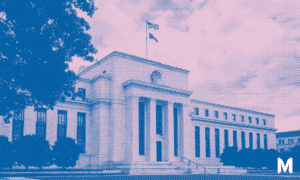The Israeli government is banning cash payments above $4,400 or 15,000 Shekels for individuals beginning 1st of August 2022. Businesses are limited to cash transactions of $1,760 or 6,000 Shekels.
These efforts are made in an attempt to boost digital payments.
The country, which has been war-torn and involved in numerous conflicts, is known for its strict entry requirements and airline security. Israel’s national intelligence agency, the Mossad, has gained Hollywood-level fame as well.
The Israeli government’s move to limit cash transactions comes at no surprise. Despite some people still calling bitcoin an anonymous form of money mostly used by criminals, cash is far more anonymous and the preferred means of transaction for criminals.
This also includes terrorism, which is a major concern for the Israeli government. Limiting cash payments gives the government more control to track tax evasion, black market activity and money laundering.
Lyn Alden tweeted about the matter, saying she expects this trend to continue in other countries as well:
According to reports, the Israeli central bank has been working on a digital Shekel for quite a while and is planning to launch its own Central Bank Digital Currency (CBDC). Last month, the Bank of Israel published a press release called: “Digital shekel project – Technological experiment on a distributed platform”.
The document outlines the Bank of Israel’s first experiments with a CBDC. The rollout of tighter limits for cash payments could be seen as a first stage of getting a majority of individuals and businesses to primarily use deposit money.
Deposit money is not directly controlled by the central bank but rather by the fractional-reserve banking system.
Later on, once the Bank of Israel’s experiments and CBDC pilot project has matured enough, Israel might roll out its CBDC, which would be significantly different than the current banking system and digital money most of the world has been using.
Critics of CBDCs, which includes a majority of bitcoin proponents, have been vocal about privacy concerns and government overreach.
The Bank of Israel conducted a “survey” among various important parties in the country earlier this year and received 33 responses which it summarized in a document called “The Digital Shekel Project: A Summary of Public Responses”.
One section states:
“There are those who argue that, regarding transaction confidentiality, it is important that the digital shekel be designed similarly to cash, meaning that there be full anonymity. Others support there being privacy, but while maintaining the rules of the money laundering prohibition, such that the efforts of the war on the unreported economy are not hampered. Therefore, the respondents agree that the digital shekel should help the war on the unreported economy and economic crime, but subject to its level of adoption by the public.”




